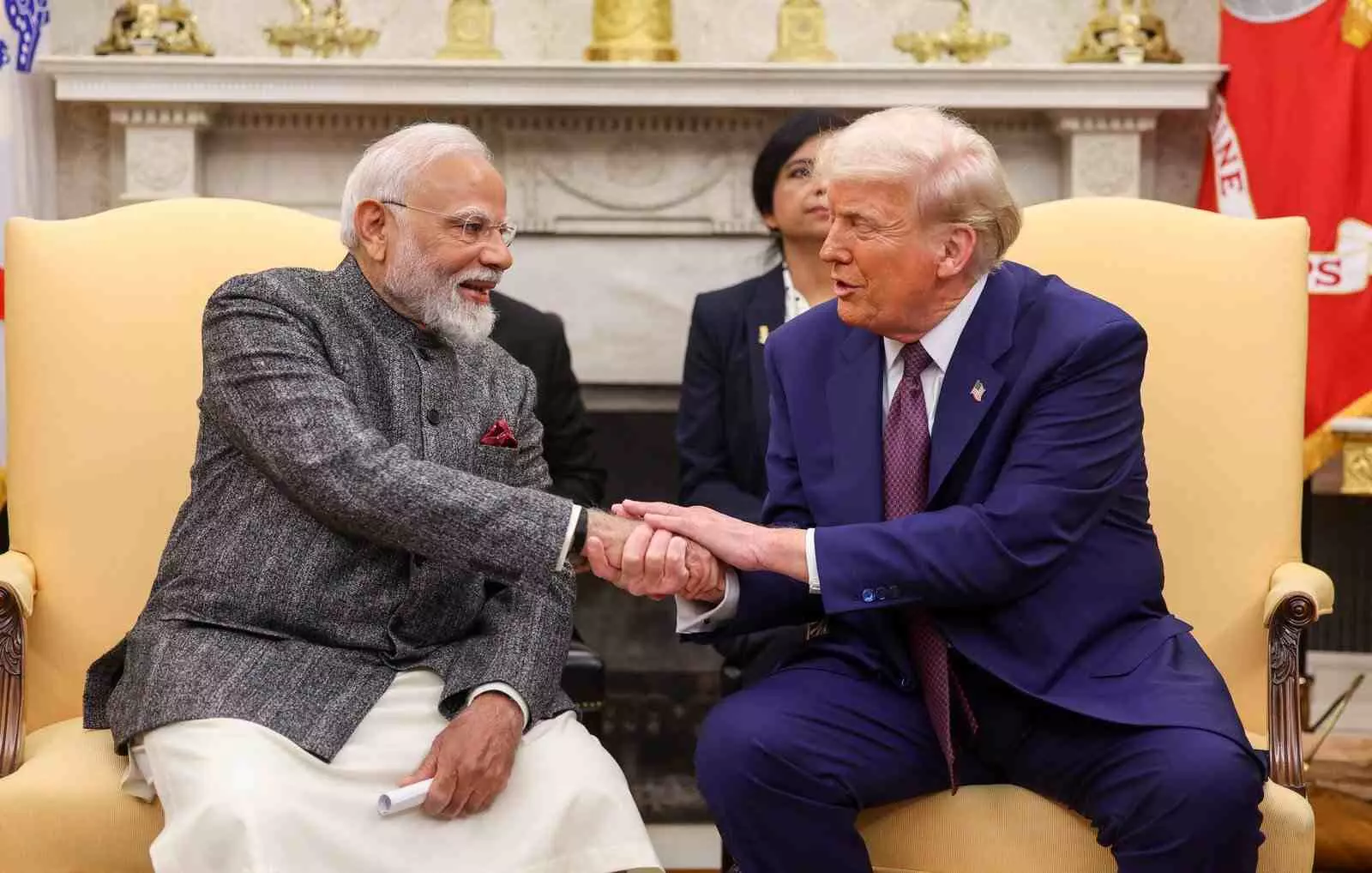
Sullivan, Campbell warn US needs India ties to counter China
Ex-Biden officials Jake Sullivan and Kurt Campbell warn that strained India-US ties risk ceding the innovation edge to China amid Trump’s tariffs

Despite India-US bilateral ties currently witnessing a “a rapid and regrettable downturn” and a “moment of unprecedented discord" with President Donald Trump’s decision to impose a cumulative 50 per cent tariff on India, former National Security Advisor (NSA) Jake Sullivan and ex-US Deputy Secretary Kurt M Campbell in a co-authored article for the Foreign Affairs stated that the ties must be restored to ensure that the US dies not lose the “innovation edge” to China. Both Sullivan and Campbell were part of the erstwhile Joe Biden administration.
‘Disincentivised Chinese adventurism’
Sullivan and Campbell further stated that India’s recent desire to ensure a “free and open Indo-Pacific” has made it more statistically aligned with the US, which has “effectively disincentivised” reckless Chinese adventurism.
"The goal would be to build a common technology ecosystem, linked to other allies, to ensure the United States and fellow democracies do not cede the innovation edge to competitors such as China,” stated the article.
“This would mean working together on both the 'promote' agenda of bold public investments, common R&D, and shared talent—as well as the 'protect' agenda of aligning export controls and cybersecurity measures," it added.
Also Read: Trump-Modi friendship is gone, says ex-NSA John Bolton
Measures by former US Presidents
The former Biden administration officials pointed out that before the India-US relationship turning frosty with Trump’s tariffs- first the 25 per cent reciprocal tariffs and then another 25 per cent retaliatory tariffs on India for its purchase of Russian oil the revenue from according to Washington was being used by Russia to fund its war in Ukraine-several US Presidents have taken steps to bolster bilateral ties into something deeper and sustained.
“Until this most recent dustup, multiple U.S. presidents have pushed forward specific initiatives to advance the relationship and convert a general sense of promise into something deeper and sustained, including President George W. Bush and Indian Prime Minister Manmohan Singh’s landmark U.S.-India Civil Nuclear Agreement and President Joe Biden and Prime Minister Narendra Modi’s cooperation in critical fields such as AI, biotechnology, and aerospace,” stated the article.
Also Read: US lawmaker Meeks warns Trump’s tariffs threaten vital US-India relationship
SCO summit and US’s rivals
Referring to the display of bonhomie among Prime Minister Narendra Modi, Russian President Vladimir Putin, and his Chinese counterpart Xi Jinping at the SCO summit in China, Sullivan and Campbell argued that the “current trajectory risks a split” that would turn out to be difficult to mend, to the great detriment of both countries. They argued that with its current actions, the US could end up pushing India towards China and Russia.
“As Modi’s chummy appearance over the weekend with Chinese President Xi Jinping and Russian President Vladimir Putin made clear, the United States could end up driving India directly into its adversaries’ arms,” stated the article.
Also Read: Trump says India 'kills us with tariffs', claims New Delhi offered zero tariff deal
‘Indo-US strategic alliance’
It further stated that India and the US must create “a strategic alliance” based on a series of mutual commitments regarding technology, defence, supply chains, intelligence, and global problem-solving.
“As Modi’s chummy appearance over the weekend with Chinese President Xi Jinping and Russian President Vladimir Putin made clear, the United States could end up driving India directly into its adversaries’ arms. India, meanwhile, could end up squeezed on all sides with an unaccommodating power in China on its border and strained technology, education, and defence ties with the United States,” stated the article.

